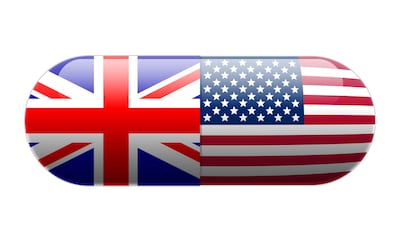The Trump administration has launched TrumpRx, a website the White House says could help save Americans billions in pharmaceutical spending, although it does not itself sell or dispense drugs.
The sales opportunity in Medicare Part D and Medicaid arrives as Lilly and Novo Nordisk face a new competitive threat from compounded semaglutide for obesity.
The trade association Medicines Australia has set out key priorities for the government’s upcoming budget announcement in light of worsening access to innovative medicines for Australian patients.
External reference pricing is one of several drug pricing control measures used by a number of countries to contain drugs prices.
The agreement covers the gamut of often criticized PBM tactics and includes commitments to pass price concessions to consumers.
The UK-US trade deal offers the “the most encouraging signs the industry has seen for many years,” but UK companies had little influence over it and details are still scarce, according to one industry expert.
The US Labor Department also added a proposed rule requiring PBMs to disclose additional compensation information to certain employer-plan sponsors.
A key UK database of new medicines in drug company pipelines is being updated to future-proof horizon scanning in the UK and include vaccines.
By accepting qualified data from overseas trials to support drug registration in China, recently revised regulations for the implementation of the country’s Drug Administration Law aim to solidify regulatory pathways for use of such data and the more efficient market entry of innovative drugs.
The Brazilian government wants to boost the country’s capabilities to develop radical innovation that leads to new therapies for the national health system.
Japan is gearing up for a Lower House election in February and the result could affect biopharma policies. Multiple political parties have laid out reform plans in the area should they win.
Newly revised regulations for the implementation of China’s Drug Administration Law transition to a market authorization holder/product-centered regulatory approach in response to the rapidly changing biopharma environment.
The HHS OIG advisory pertains to manufacturer sales to patients. OIG will seek stakeholder input regarding possible additional guidance on manufacturer arrangements with pharmacies, pharmacy benefit managers, telemedicine vendors and marketers.
The Irish government has struck new in-principle agreements with the innovator and off-patent pharmaceutical sectors to help make the health care system more sustainable.
The process will pit breast cancer treatment competitors Kisqali and Verzenio against each other as CMS develops pricing offers.
Enactment of a law delinking PBM compensation from list prices would still be a long-sought victory for pharma.
The US pharmaceutical market is critical for European pharma companies, but new policies introduced by the Trump administration are creating an increasingly complex and uncertain environment for them.
President Trump says something will be "worked out" with South Korea following his declaration that tariffs on the country would be increased to 25%, due to what he views as delays in implementing a bilateral trade deal.
An India-EU trade deal sets ground for a free trade agreement to lower tariffs on pharma, though an investment protection agreement – likely influencing data exclusivity – will be concluded later. Will the US now reconsider its India tariffs?
Heavy hitters Keytruda and Opdivo got a pass in the third round of price negotiation because of the expanded orphan drug exemption in President Trump’s One Big Beautiful Bill.



















